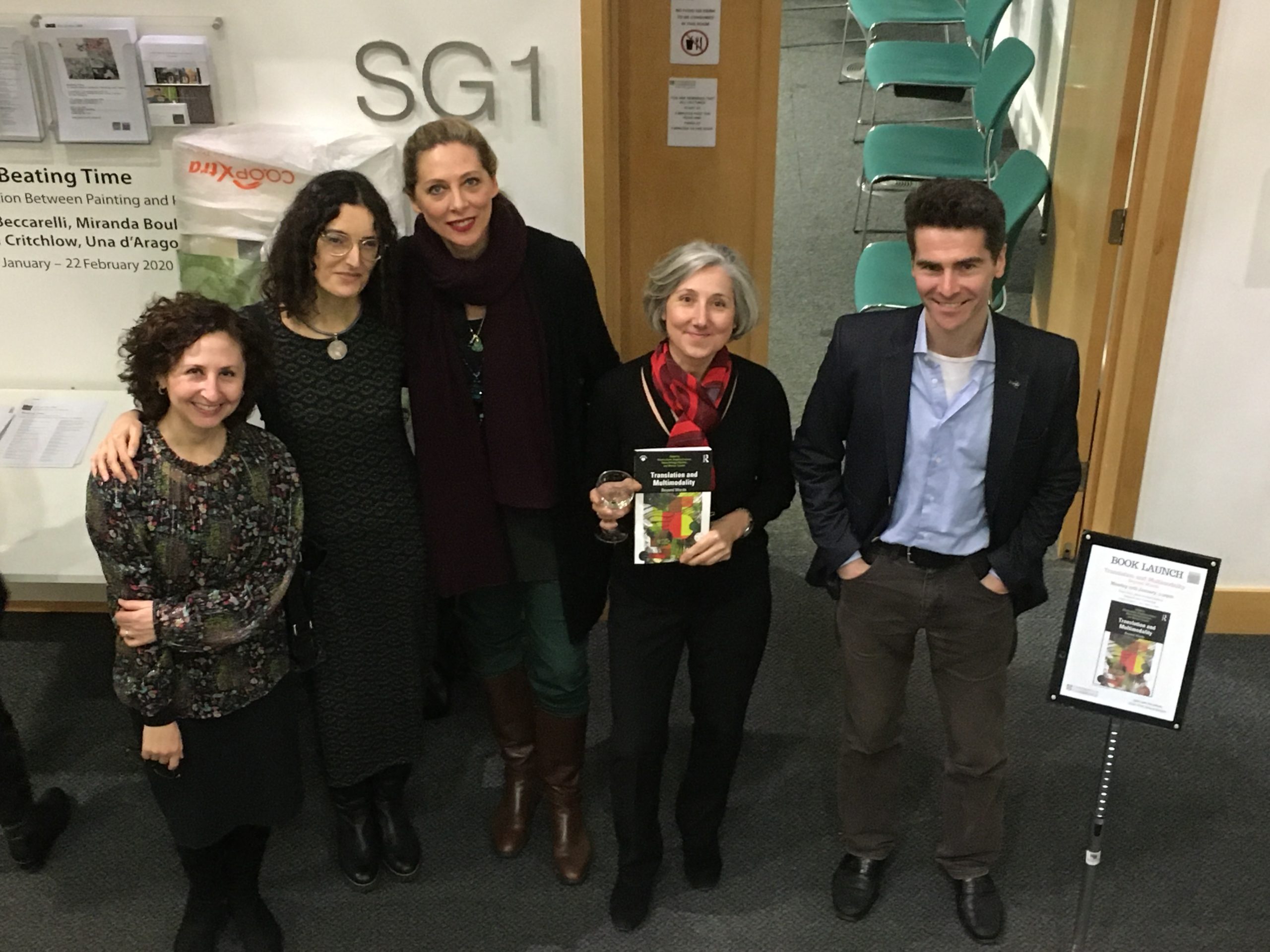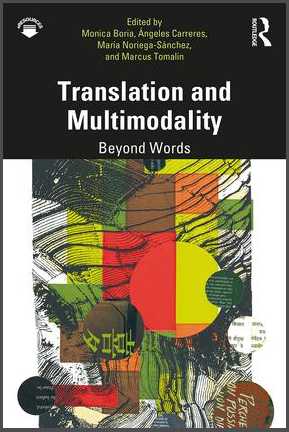| 27 Jan 2020 | 5:30pm - 6:30pm | Seminar Room SG1, Alison Richard Building, 7 West Road, Cambridge, CB3 9DT | |
- Description
Description
Ángeles Carreres (Faculty of Modern and Medieval Languages, University of Cambridge)
Monica Boria (Freelance Translator, Faculty of Modern and Medieval Languages, University of Cambridge)
María Noriega-Sánchez (Faculty of Modern and Medieval Languages, University of Cambridge))
Dr Marcus Tomalin (CRASSH (Faculty of English/Department of Engineering)
Helena Sanson (Faculty of Modern and Medieval Languages, University of Cambridge)
Book Launch
Join Ángeles, María, Monica and Marcus in conversation with Professor Helena Sanson.
A drinks reception will follow in the foyer.
The event is free and open to all. No booking required.

Photo: E Lamb

'Beyond Words: Translation and Multimodality' is one of the first-ever book-length studies of how translation needs to be redefined and reconfigured in contexts where multiple modes of communication and meaning-making are simultaneously involved (e.g., words, images,
movement, gesture, music). It contains chapters written by world-leading experts in translation theory and multimodality, and each one explores important interconnections between these related, yet all-too-often distinct, disciplines.
The need for a focused consideration of translation in multimodal contexts is becoming increasingly self-evident. The first decades of the twenty-first century have witnessed a proliferation of interconnected social, economic, cultural, and technological changes that have already begun to transform the nature of human communication in discernible ways. The conspicuous dominance of the web, and the rapid burgeoning of social media, mobile phones, and other digital technologies, have engendered a culture moment in which texts, images, and sounds frequently combine to convey complex messages. In their different ways, emojis, internet memes, and the automatic captioning of TV shows are all illustrative examples of this broad trend. The emerging field of ‘multimodality’ has sought to provide an analytical framework that facilitates the study of such phenomena. For instance, the influential work of Gunther Kress has elaborated a social-semiotic approach for understanding how the linguistic, the paralinguistic, and the non-linguistic interact to construct and convey meanings.
Despite these advances, minimal attention has so far been paid specifically to the impact that multimodal communication is having, and/or is likely to have, upon the theory and practice of translation. This is unfortunate, since the greater prevalence of these new forms of communication and meaning-making has already begun to destabilise certain time-honoured translation-theoretic paradigms, causing old definitions and assumptions to seem fusty and inadequate. Beyond Words: Translation and Multimodality addresses these crucial issues, and tries to outline possible ways forward.
Read the CRASSH blog post Translation and Multimodality: Beyond Words: 5 Questions to the Editors.
The second series of Cambridge Conversations in Translation (CCiT), our CRASSH-based research group, concluded in style in May 2017 with a suitably trans-disciplinary one-day event. Translation & Multimodality.
See the book on the publisher's website.
Part of Cambridge Conversations in Translation Research Group Seminar Series (2015-18)
Administrative assistance: networks@crassh.cam.ac.uk
CRASSH is not responsible for the content of external websites and readings.

